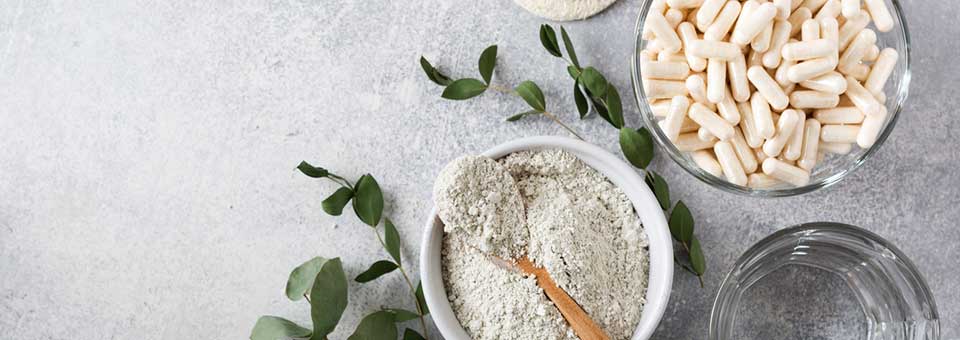As a regular reader, you’ve heard me talk about the skin benefits of collagen.
But collagen also plays an important role in weight loss.
Here’s how.
The gelatin in collagen peptides increase satiety and…
Stops You from Feeling Hungry
In a study published in the journal Eating and Weight Disorders, researchers followed 10 obese people and 12 people with normal weight.1
They found that a single serving of collagen gelatin increased levels of the “hunger hormone” ghrelin. Ghrelin tells your brain when it’s time for you to eat. If it’s out of balance, it can cause you to have constant cravings. And that’s when you start to pack on the pounds fast.
A second study looked at whether collagen peptides could reduce body fat in overweight adults. Researchers followed 90 volunteers for 12 weeks. At the start of the trial, their mean body mass index was 25.6. After taking 2,000 mg of collagen daily or a placebo, body fat was evaluated again using a full body DEXA scan and calipers.
By the end of the study, the participants who took the collagen peptides had lost twice as much body fat as the control group.2
Collagen even improves cellulite.
You see, your body’s normal fat is held in place by a network built of collagen. When collagen breaks down, the fat pops through and your skin puckers. It looks like an orange peel. Increasing collagen helps to rebuild that network and tighten skin.
4 Unexpected Benefits of Collagen
Of course, an important part of losing weight and keeping it off is exercising. Collagen can help with this as well. For example, increasing collagen can:
- Improve your workouts. Collagen contains high amounts of the amino acid arginine, which turns into nitric oxide. And nitric oxide helps to widen blood vessels to increase the delivery of nutrients and oxygen to working muscles during exercise. Arginine can also increase total body strength and aid in recovery after workouts.3
- Protect your joints and reduce pain. Regularly using collagen can reduce inflammation in joints and increase lubrication to protect cartilage from breaking down and degrading.4 It can also help with pain… In one study, 73 athletes who consumed 10 grams of collagen daily for 24 weeks experienced a significant decrease in joint pain while walking and at rest, compared with a group that did not take it.5
- Stop bone breakdown. Your bones are made up of one-third collagen, and adding this protein to your diet can inhibit the bone breakdown that leads to osteoporosis. In one study, women were given either a calcium plus collagen supplement or only calcium every day for 12 months. After a year, those taking the collagen had significantly lower blood levels of proteins that promote bone breakdown.6
- Increases muscle mass. Up to 10% of muscle tissue is composed of collagen and supplementing can boost muscle mass in people with sarcopenia. In one study, 27 frail volunteers took 15 grams of collagen while participating in an exercise program every day for 12 weeks. Compared with those who exercised but did not take collagen, they gained significantly more muscle mass and strength.7
As you age, your body produces less and less collagen. The best way to increase collagen is with bone broth. You can find one of my favorite recipes here.
Protect the Collagen you were born with
But it’s also important to keep the collagen you already have. Here’s what I recommend…
- Cut Carbs and Refined Sugars. They interfere with collagen’s ability to repair itself. Refined carbs also change the kind of collagen you have. A carb-heavy diet turns good type 3 collagen into the more fragile type 1 collagen.
- Eliminate Excess Sun Exposure. Sitting in the sun is one of the best things you can do for your health. But overexposure can lead to collagen loss due to DNA damage. Expose your skin to about 20 minutes of sun daily without sunscreen. If you’re in the sun longer, use a natural sun protection, like zinc oxide.
- Reduce Stress. Research shows that stress increases inflammation which lowers your ability to naturally produce collagen. Stress can also increase the hormone cortisol, which again lowers collagen production. In addition to exercise and more sleep, my favorite stress reducer is a cup of green tea.
1 Rubio I, et al. “Oral ingestion of a hydrolyzed gelatin meal in subjects with normal weight and in obese patients: Postprandial effect on circulating gut peptides, glucose and insulin.” Eat Weight Disord. 2008 Mar;13(1):48-53.
2 Tak Y, et al. “Effect of oral ingestion of low-molecular collagen peptides derived from skate (raja kenojei) skin on body fat in overweight adults: a randomized, double-blind, placebo-controlled trial.” Mar Drugs. 2019 Mar; 17(3): 157.
3 Hochstenbach-Waelen A, et al. “Single-protein casein and gelatin diets affect energy expenditure similarly but substrate balance and appetite differently in adults.” J Nutr. 2009 Dec;139(12):2285-92.
4 Soniwala, S. et al., 2018, Oral Hydrolyzed Type 2 Collagen Protects Against the OA of Obesity and Mitigates Obese Gut Microbiome Dysbiosis. Poster presentation at ORS 2018 and OARSI 2018
5 Clark K, et al. “24-Week study on the use of collagen hydrolysate as a dietary supplement in athletes with activity-related joint pain.” Curr Med Res Opin.2008 May;24(5):1485-96.
6 Elam M, et al. “A calcium-collagen chelate dietary supplement attenuates bone loss in postmenopausal women with osteopenia: a randomized controlled trial.” J Med Food. 2015 Mar;18(3):324-31.
7 Zdzieblik D, et al. “Collagen peptide supplementation in combination with resistance training improves body composition and increases muscle strength in elderly sarcopenic men: a randomised controlled trial.” Br J Nutr. 2015 Oct 28; 114(8): 1237–1245.

